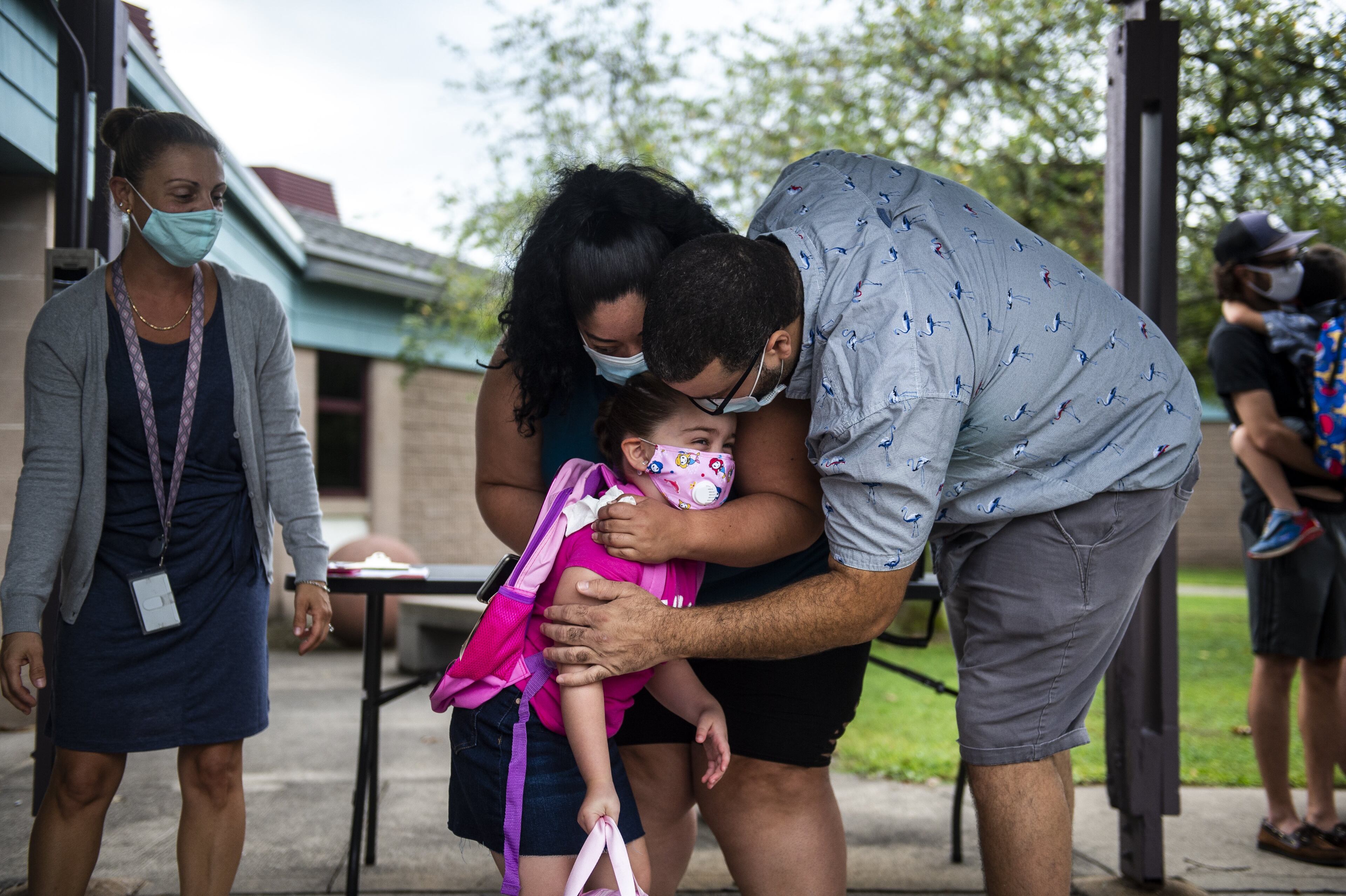In AJC poll, school reopening views often align with political beliefs

Race and politics appeared to influence whether Georgians supported reopening schools this fall, with Republicans and white voters favoring reopening and Democrats and Black voters mostly opposing the idea.
A new Atlanta Journal-Constitution poll of likely voters in the state showed 87% of Republicans support the resumption of in-person classes. Fewer than a third of Democrats — 30.7% — were “strongly” or “somewhat” in favor of opening this fall. Independents, at 34%, felt similarly to Democrats.
The wary reaction of Black respondents is likely driven by the recognition that Black people are more likely to get infected and die from the disease. The partisan skew may be driven both by ideological differences and by the way leaders in both parties wielded the pandemic for political gain ahead of a national election.
It is partisan, said Betty Bowman, an 80-year-old white Paulding County Republican with five great-grandchildren there, “because the Democrats want to win.”
Political scientist Kerwin Swint said the pandemic plays to ideological differences: Republicans are more likely to fret about the economy while Democrats think about social issues, like health care. And Democrats seized on that early last year as COVID-19 reached the United States.
“The Democrats clearly saw — clearly saw — the potential for a wedge issue," said Swint, a professor at Kennesaw State University. "They began blaming Donald Trump for mishandling the crisis before there was a crisis.”
But Trump hammered the political wedge, too, said Andra Gillespie, who teaches about race and politics at Emory University. The president made it clear that he wanted schools open, she noted. His attacks on his own scientific advisors gave governors cover to reopen their economies and avoid mask mandates while also spurring protests against governors who went the other way, she said.
The AJC survey of 1,145 likely voters, conducted Oct. 14-23 by the University of Georgia’s School of Public and International Affairs, had Democrats' and independents' answers aligned more closely. The two groups' responses in favor of opening schools were within the 4 percentage point margin of error, though independents were nearly three times as likely as Democrats to “strongly” support opening, at 18.3% versus 6.6% for Democrats. Among Republicans, 67.5% said they strongly favored opening.
The hot-button issue has put school leaders across Georgia in tough situations, with protests arising against both decisions to open and decisions to stay closed.
Julia Bernath, president of the Fulton County school board, said opinions about safe schooling differ across the county. The board focused on the public health data, she said, as Fulton began reopening in September.
But in nearby Decatur, Superintendent David Dude had been saying the data didn’t support opening until he abruptly announced that it did. Then, after several protests by teachers and parents, he reversed again, saying the situation is confusing “because we are not getting the guidance” from state and federal government.

Dr. Wendy Armstrong, a board member of the Infectious Diseases Society of America, said at a recent national press briefing that there have been no “obvious” superspreader events in schools, but she also said there is not enough good data being collected on a national scale.
“This severely limits our ability to give guidance,” said Armstrong, who teaches medicine at Emory.
Black parents in particular should be wary, said Valarie Wilson, executive director of the Georgia School Boards Association, “because we are dying at a much higher rate than others." Her organization advised school districts to keep that in mind as they weighed whether to open, and said school leaders do not want their students to fall behind and seem to feel that teaching in-person is best.
“I would like to believe that a lot of decisions about going back had more to do with that than the politics of it," said Wilson, who is Black.
Ashley Hill, 36, a mother of four in Cobb County, told pollsters that she strongly opposes reopening schools. The Black Democrat paraphrased Biden at a recent debate: “They don’t have the funds to do proper ventilation,” so how can they open safely? “I just feel like it’s so political.”
Though Bowman, the Republican great-grandmother in Paulding, wants schools open for her great-grandchildren, the retired nurse wears a mask in public and is also sober about the risk. She thinks the conditions at North Paulding High School, where students posted photographs online showing crowded hallways with few students in masks, were unsafe but also thinks the risk was overblown.
“I think it is a very dangerous virus but we can’t close down again,” Bowman said. “I think we’ve got to be sensible about it.”




